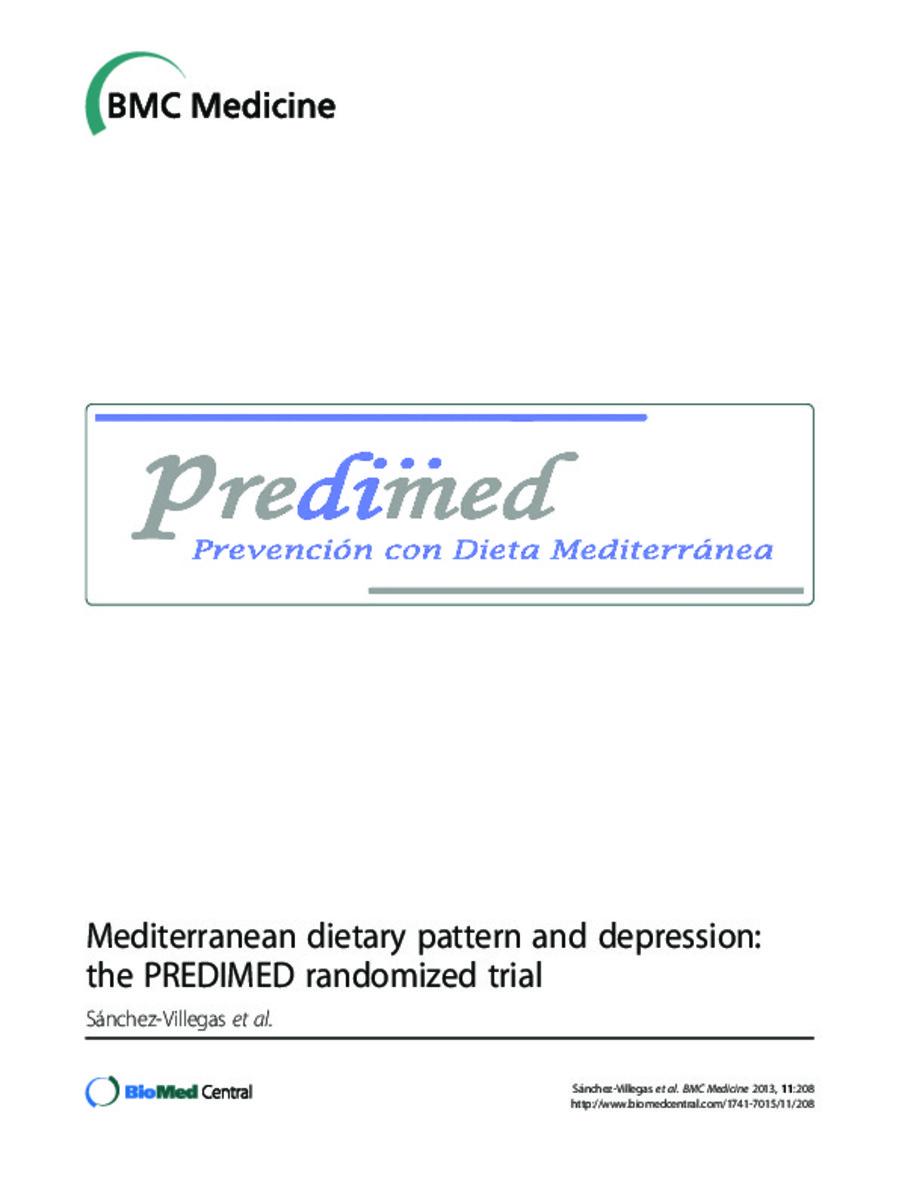Full metadata record
| DC Field | Value | Language |
|---|---|---|
| dc.creator | Sanchez-Villegas, A. (Almudena) | - |
| dc.creator | Martinez-Gonzalez, M.A. (Miguel Ángel) | - |
| dc.creator | Estruch, R. (Ramón) | - |
| dc.creator | Salas-Salvado, J. (Jordi) | - |
| dc.creator | Corella, D. (Dolores) | - |
| dc.creator | Covas, M.I. (María Isabel) | - |
| dc.creator | Aros, F. (Fernando) | - |
| dc.creator | Romaguera, D. (Dora) | - |
| dc.creator | Gomez-Gracia, E. (Enrique) | - |
| dc.creator | Lapetra, J. (José) | - |
| dc.creator | Pinto, X. (Xavier) | - |
| dc.creator | Martinez, J.A. (José Alfredo) | - |
| dc.creator | Lamuela-Raventos, R.M. (Rosa Maria) | - |
| dc.creator | Ros, E. (Emilio) | - |
| dc.creator | Gea, A. (Alfredo) | - |
| dc.creator | Wärnberg, J. (Julia) | - |
| dc.creator | Serra-Majem, L. (Luis) | - |
| dc.date.accessioned | 2014-10-22T10:21:34Z | - |
| dc.date.available | 2014-10-22T10:21:34Z | - |
| dc.date.issued | 2013 | - |
| dc.identifier.citation | Sanchez-Villegas A, Martinez-Gonzalez MA, Estruch R, Salas-Salvado J, Corella D, Covas MI, et al. Mediterranean dietary pattern and depression: the PREDIMED randomized trial. BMC Med 2013 Sep 20;11:208. | es_ES |
| dc.identifier.issn | 1741-7015 | - |
| dc.identifier.uri | https://hdl.handle.net/10171/36879 | - |
| dc.description.abstract | BACKGROUND: A few observational studies have found an inverse association between adherence to a Mediterranean diet and the risk of depression. Randomized trials with an intervention based on this dietary pattern could provide the most definitive answer to the findings reported by observational studies. The aim of this study was to compare in a randomized trial the effects of two Mediterranean diets versus a low-fat diet on depression risk after at least 3 years of intervention. METHODS: This was a multicenter, randomized, primary prevention field trial of cardiovascular disease (Prevención con Dieta Mediterránea (PREDIMED Study)) based on community-dwelling men aged 55 to 80 years and women aged 60 to 80 years at high risk of cardiovascular disease (51% of them had type 2 diabetes; DM2) attending primary care centers affiliated with 11 Spanish teaching hospitals. Primary analyses were performed on an intention-to-treat basis. Cox regression models were used to assess the relationship between the nutritional intervention groups and the incidence of depression. RESULTS: We identified 224 new cases of depression during follow-up. There was an inverse association with depression for participants assigned to a Mediterranean diet supplemented with nuts (multivariate hazard ratio (HR) 0.78; 95% confidence interval (CI) 0.55 to 1.10) compared with participants assigned to the control group, although this was not significant. However, when the analysis was restricted to participants with DM2, the magnitude of the effect of the intervention with the Mediterranean diet supplemented with nuts did reach statistical significance (multivariate HR = 0.59; 95% CI 0.36 to 0.98). CONCLUSIONS: The result suggest that a Mediterranean diet supplemented with nuts could exert a beneficial effect on the risk of depression in patients with DM2. TRIAL REGISTRATION: This trial has been registered in the Current Controlled Trials with the number ISRCTN 35739639. | es_ES |
| dc.language.iso | eng | es_ES |
| dc.publisher | BioMed Central | es_ES |
| dc.rights | info:eu-repo/semantics/openAccess | es_ES |
| dc.subject | Materias Investigacion::Ciencias de la Salud::Nutrición y dietética | es_ES |
| dc.subject | Mediterranean diet | es_ES |
| dc.subject | Depression | es_ES |
| dc.subject | Trial | es_ES |
| dc.subject | Primary prevention | es_ES |
| dc.subject | Nuts | es_ES |
| dc.subject | Olive oil | es_ES |
| dc.subject | Low-fat | es_ES |
| dc.subject | Diabetes | es_ES |
| dc.title | Mediterranean dietary pattern and depression: the PREDIMED randomized trial | es_ES |
| dc.type | info:eu-repo/semantics/article | es_ES |
| dc.identifier.doi | 10.1186/1741-7015-11-208 | - |
Files in This Item:
Statistics and impact
Items in Dadun are protected by copyright, with all rights reserved, unless otherwise indicated.






